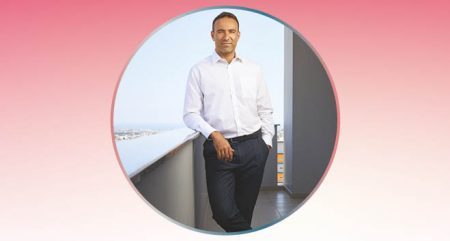LIMASSOL: The (Forex) Place To Be
Undoubtedly, Limassol is the beating heart of Cyprus’ Forex industry. Being home to so many online trading companies, the city continues to attract not only talent but more investors in its business infrastructure. BDSwiss CEO Nicolas Shamtanis analyses the sector and the many reasons why Limassol has deservedly become the industry’s hub.
Forex/online trading is one of the few industries that appears to have been impacted positively by the COVID-19 pandemic. Has that been the case with BDSwiss?
I want to preface my answer by addressing the epidemic situation first. It was one of the most challenging times in modern history: a costly and terrible experience we all had to go through together. We lost a lot but I believe we have come out of it stronger and wiser than ever. Now, talking about its impact on our industry, I’ll simply quote the great Henry J. Kaiser who said that “Problems are only opportunities in work clothes.” Taking the tragic elements of COVID-19 out of the equation, people had the chance to stay at home, spend more time online and get accustomed to Forex trading. BDSwiss capitalised on the opportunity and contributed to the amplification of online trading.
How would you assess the current state of the sector, due to the war in Ukraine and the worsening of relations between the EU and Russia? To what extent has it been affected?
The Forex industry is a mirror of socioeconomic events. Price movements and charts are simply the heart rate of the market and, as happens with the human heart, war causes fear, uncertainty and spikes in adrenaline – the same goes for the Forex market. The war has caused further volatility in trading pairs. As it unfolds on a daily basis, so does the effect on prices. The most significant asset that’s been affected by the war is oil. Fears of an oil supply shortage sent crude prices surging over $100 a barrel for the first time since 2014. We are all watching with great interest to see how the oil situation will be handled, as this goes well beyond trading the instrument.
Has the challenge of increasingly stricter compliance affected the company? How have you responded?
Stricter compliance is something we endorse and have been yearning for as a company. BDSwiss is built on the pillars of fair, transparent and ethical trading and stricter compliance simply raises the bar of professionalism for the entire industry. The Forex industry is evolving and so should the regulation surrounding it. Our team is always iterating, improving and evolving its compliance practices to mirror regulatory requirements, and what many may see as a challenge, we see as a blessing in disguise.
Forex companies are known to suffer from high employee burnout and turnover. How do you manage to retain your best talent?
Companies are nothing without the people that work for them. One of the things we’re most proud of at BDSwiss is retaining talent for well above industry averages. We take a lot of actions and initiatives to inspire and nurture teams, such as team-building events and internal competitions, but the most important element of our company culture is demonstrating to our employees that we value them as people. We show great sensitivity towards work-life balance, allowing them to work remotely when possible and to handle their tasks without micromanagement. What’s more, we have an open-door policy and a flat organisational structure where C-level executives, including myself, are always available for everyone in the company. We’re all working for the same goal and the same team.
How do you respond to the fast-changing market environment? Can you envisage what the Forex sector will look like in 2030?
The fast-changing environment is what makes the Forex industry interesting. It’s what makes us get up in the morning and keep striving to improve. People involved in the industry need to follow politics, the weather, finance, and so many other aspects of life that affect the dynamics of prices. It’s a sector powered by information and knowledge, and I don’t believe that this will change anytime soon. What will change is the technology. The key to success, for both traders and companies, is perfecting the technology that will gather information and turn it into actionable trading advice as fast as possible. People are always on the go and our industry will need to accommodate the pace and style of traders. Gone are the days when traders spent hours monitoring news headlines trying to decipher their next move. Moving forward, information will need to be priced in, in real time.
Why is Limassol seen as a particularly beneficial destination for Forex companies to operate in? Does it have more to offer than other cities in Cyprus?
Regarding Limassol, I’ll just say this – the city is as gorgeous as the lifestyle. It’s a city that has changed dramatically over the last decade, offering the talent pool and infrastructure you need to build a successful Forex company. The city has become something of a hub for the industry and if you add the sun, the beaches and the food, you have a combination that’s hard to beat. At this point, it would be counterproductive to move to any other city, whether you’re a Forex broker or service provider.
